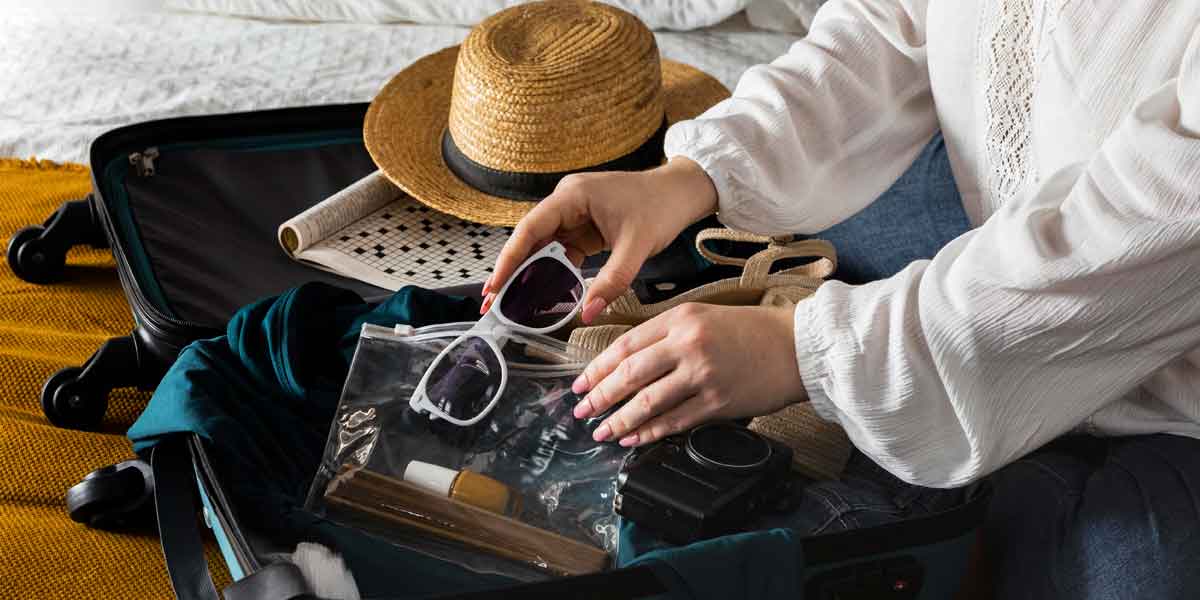
10 Important Travel Safety Tips Everyone Should Know
Travel Safety is More Important Than You Think
When we pack our suitcases for vacation, we look forward to time away to relax and enjoy our time off. Unfortunately, some travelers become victims of scammers and thieves each year, ending vacation fun fast for unsuspecting travelers.
Savvy jet-setters and road-trippers know that travel safety is more important now than ever. With a few travel safety tips and extra care, you can avoid scams and enjoy vacation time instead. Here are some safety concerns when traveling and tips to avoid being a victim.
10 Essential Travel Safety Tips
1: Don’t Flash Your Valuables
Do not wear your expensive jewelry, sport designer handbags, or flash lots of cash when visiting crowded tourist spots. These things can make you an easy target for thieves looking to rob tourists.
2: Know the Phone Number for Emergency Services
Plan in advance, and find the number for emergency services for your vacation destination. If you're traveling outside of the U.S., one of the best travel safety tips is knowing how to contact the nearest embassy. Quick access in the event of an emergency is priceless.
3: Get Your Travel Vaccinations
Depending on your destination, certain vaccinations may be required. Check with authorities or a family doctor for guidance on travel vaccinations. Remember to bring vaccination certificates to avoid denial of entry or revaccination.

4: Bring Travel Locks for Your Luggage AND Data
Travel locks are always a good idea when vacationing. Keep your bag secure at the airport or a restaurant using a travel lock to attach the bag to your chair or another secure object. You can also lock your electronics with a USB data blocker to prevent unwanted data transfers/access. The data blocker is attached between the charging cable and the USB charging port and ensures all data and access to things like bank accounts are private and protected from scammers.
5: Use Reputable Transportation Companies
Do your homework when it comes to transportation options for your vacation. Smart practices like finding a reputable taxi company before you arrive at your destination is a good idea. Scope out local ride-share options like Uber or Lyft and get their name and vehicle information before accepting a ride.
6: Share Your Itinerary with Family and Friends
Always let someone know the details of your trip and the complete itinerary. Make them aware of any plan changes and check in with friends or family throughout the trip to let them know all is well. This is especially important when traveling abroad or in a very unfamiliar area.
7: Don't Share Too Much with Strangers
Avoid sharing unnecessary information with those you meet during travels. Though it might seem harmless to tell them where you are staying or your plans for the day, scammers and thieves can use this information to harm you. Also, avoid posting vacation photos on social media that tell everyone you are away and your home is empty.
8: Use ATMs in Banks or Secure Locations
Carrying a large amount of cash when traveling is not advisable, so you may need to use an ATM, but make sure to choose a secure one. Using an ATM located in a bank is a wise choice, as these machines have more security and are more challenging for scammers to tamper with. ATMs in hotels or other indoor secure areas are also a safer option than machines that are located outdoors or in high-traffic open areas.

9: Trust Your Instincts
Go with your gut if you are getting an uncomfortable vibe from a person or place while traveling. Sometimes we aren’t even aware that our subconscious is detecting that something is off, and we might be in danger. More often than not, following that hunch will help keep you safe.
10: Be Aware of Your Surroundings
When it comes to travel safety tips, staying alert and aware is a very important one. Being aware of your surroundings is crucial while out and about. Pay attention to what's happening, and don't get so distracted that someone can take advantage of you. This is especially important for those traveling solo.
Taking advantage of these travel safety tips is a sure way to avoid potential scams and ensure your vacation is relaxing and carefree.
Related Articles
Three Ways to Make the 52 Week Savings Challenge Work for You. Give yourself the gift of savings - start your challenge now!
Are you looking to give your savings a serious boost this year? The 52-Week Savings Challenge might...Winter-Ready Living: 8 Areas in Your Home that Require Winterizing
Part of being a homeowner is being prepared when the weather can impact your house. While it is a...Terms and conditions
This content is provided for general informational purposes only and does not constitute financial, investment, tax, legal, or accounting advice. Individual circumstances and current events are critical to sound investment planning; anyone wishing to act on this information should consult with a financial professional. The information contained in these articles was obtained from sources believed to be reliable and accurate at the time of publishing. We do not represent that it is accurate or complete, and it should not be relied upon as such. All opinions and estimates expressed in this article are as of publication date unless otherwise indicated, and are subject to change.